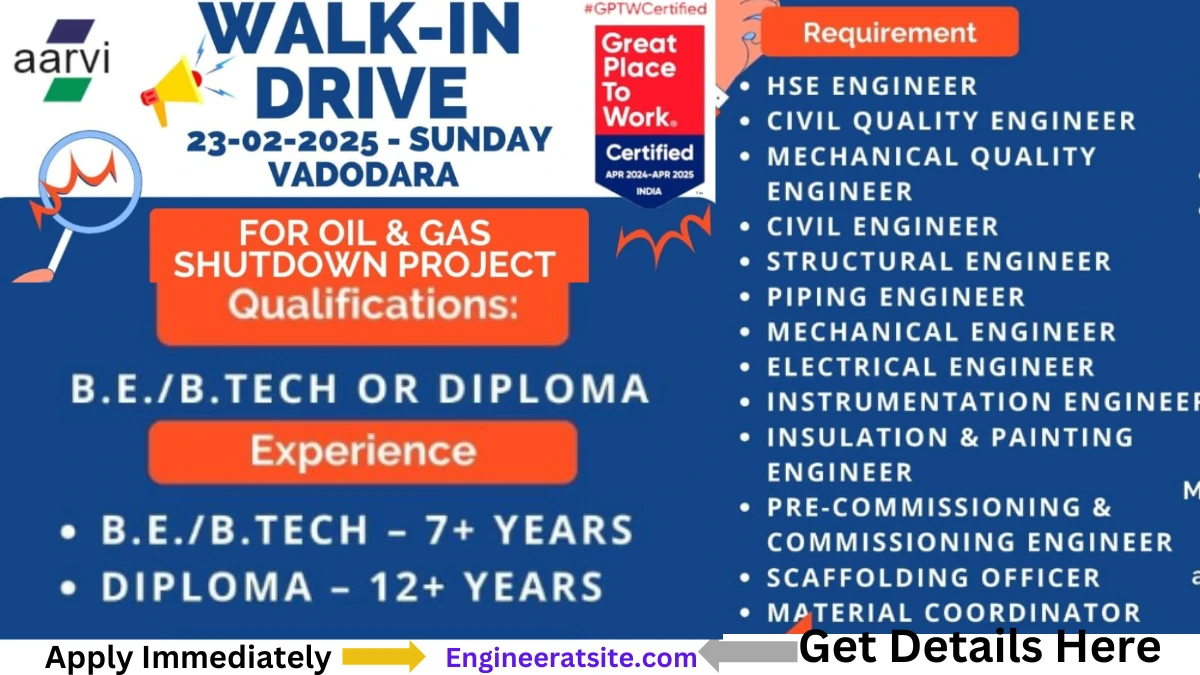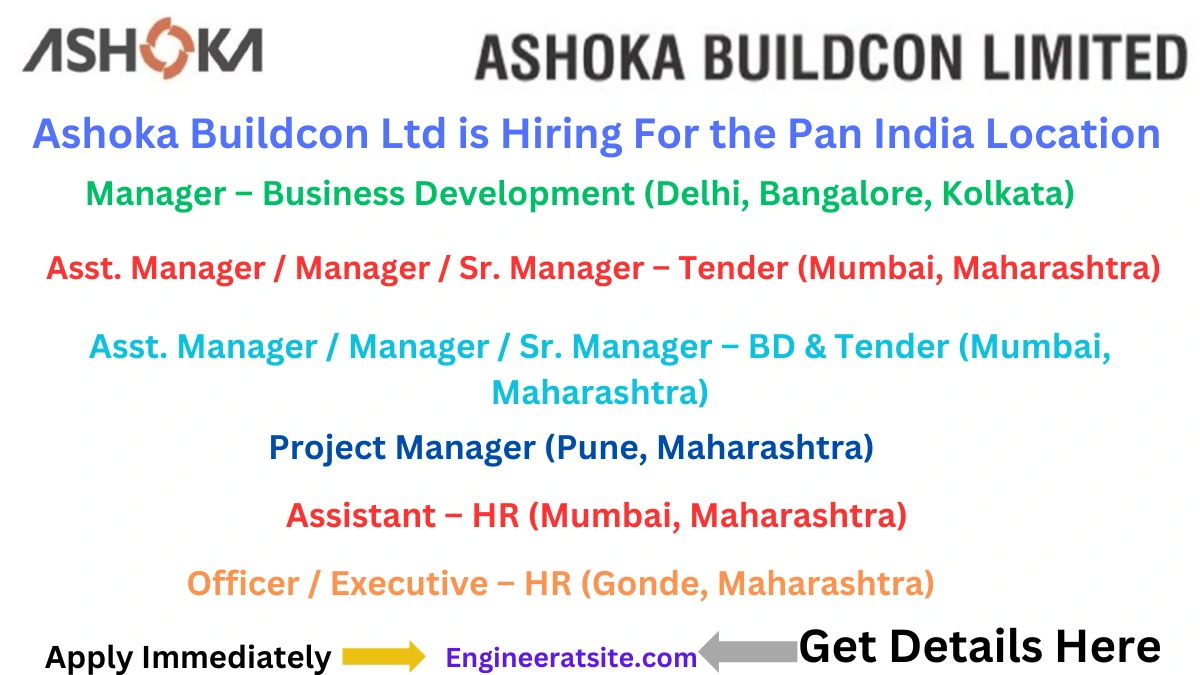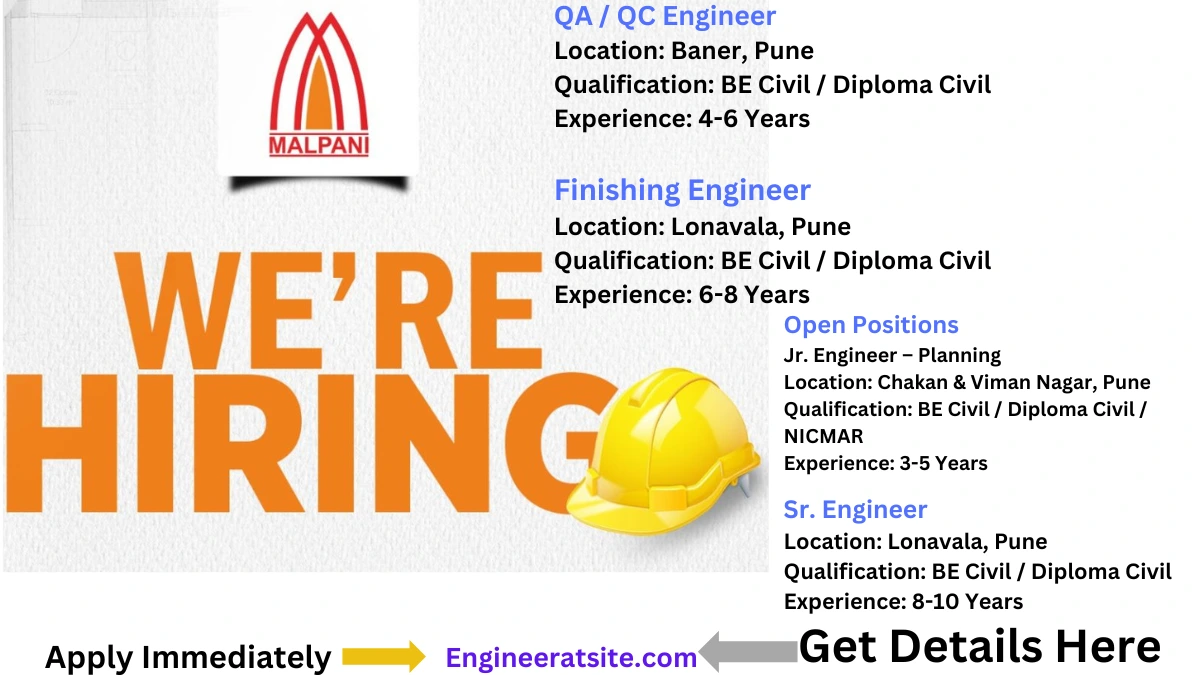L and T Energy Hydrocarbon Jobs – Walk-In-Interview for experienced Construction Site Professionals
Looking for an opportunity to work with a global leader in Oil & Gas EPC? L&T Energy Hydrocarbon is conducting a walk-in interview for experienced Construction Site Professionals. If you have 5 to 20 years of experience in the Oil & Gas industry, this is your chance to work on large-scale hydrocarbon projects worldwide.

Join L&T’s journey towards excellence and secure your future with a leading EPC company!
Table of Contents
Walk-In-Interview Details For L&T Energy Hydrocarbon Jobs
Date: 23rd February 2025 (Sunday)
Time: 9:00 AM – 4:00 PM
Location: Visakhapatnam, Andhra Pradesh
Venue:
Keys Select Hotel, 75 Feet Road, Dabagardens,
Visakhapatnam – 530020, Andhra Pradesh
Open Positions For L and T Energy Hydrocarbon Jobs
👉 Health, Safety & Environment (HSE)
👉 Mechanical Execution – Piping
👉 Quality Assurance & Quality Control (QA/QC)
👉 Construction Planning
👉 Execution – Civil
👉 Execution – E&I (Electrical & Instrumentation)
Job Locations: Pan India & Saudi Arabia
Preferred Candidates: Those with full-time Degree/Diploma (60%+ with no backlogs)
Why Join L&T Energy Hydrocarbon?
👉 Work on cutting-edge EPC projects in Oil & Gas
👉 Career growth opportunities with a global leader
👉 Competitive salary & benefits package
👉 Inclusive workplace – Women professionals & PWD encouraged to apply
How to Apply for L&T Energy Hydrocarbon Jobs
Walk in with Two Copies of Your CV (mention the applied post on top).
Unable to Attend? Email Your CV To:
CAREERSONSHORE@Larsentoubro.com
For More Details: L&T Careers Portal
Caution: L&T does not charge fees at any stage of recruitment. Report any fraud to infodesk@Larsentoubro.com
Know someone looking for a job in Oil & Gas? Share this opportunity with them
| Exciting Job Opportunities at Hexatron Industries Limited! | Click Here |
| Exciting Career Opportunities at MKC Infrastructure Ltd | Click Here |
| Exciting Career Opportunities at HG Infra Engineering Ltd. | Click Here |
| Exciting Job Openings at ANI Integrated Services | Click Here |
| Aparna Construction Hiring | Click Here |
| Exciting Career Opportunities at Keller: Apply Now Postions | Click Here |
| Career Opportunities at HN Safal For Ahmedabad | Click Here |
| Latest Jobs | Click Here |
| Free Telegram Channel | Click Here |
| Join Us on Linked In | Click Here |
| Join Us on Facebook | Click Here |
| Follow Us On Twitter | Click Here |











